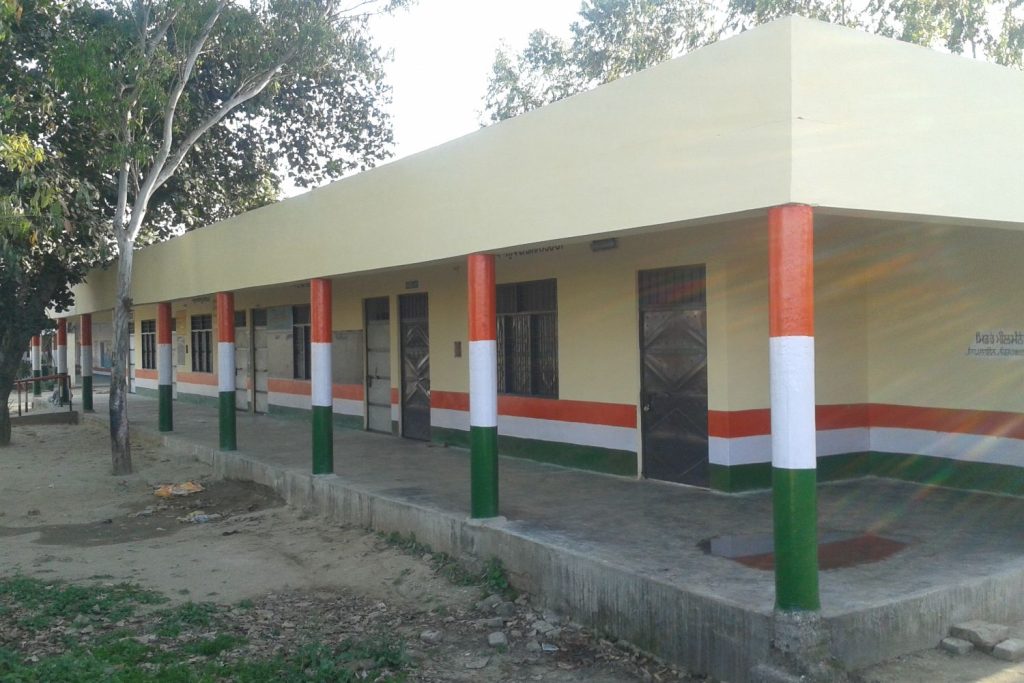Leading schools, impacting learning – The foundational role of school leadership in creating schools that work
School Leadership is often the missing link between policy imperatives in education and pedagogic practices at the classroom level. However, we often do not adequately focus our energies on this important area. This article tries to facilitate conversations surrounding this very important topic

Dear readers, we welcome you to the current issue of Samuhik Pahal, which focuses on the theme of school leadership. It is a collaborative effort between Vidhya Vidhai and Wipro Foundation. We take pride in our shared commitment to systemic education reforms in India to facilitate equity and access.
This issue of Samuhik Pahal explores how effective school leadership can potentially contribute to such efforts. This issue is not just a collection of articles. It tries to capture the experiences of our school leaders. School leadership has been identified as one of the key reasons for educational success: “Of all the factors that contribute to what students learn at school, leadership is second in strength only to classroom instruction.”
Furthermore, effective leadership has the greatest impact in those circumstances (e.g., schools “in trouble”) in which it is most needed. This evidence supports the present widespread interest in improving leadership as a key to the successful implementation of large-scale reforms” (Leithwood et al., 2004; p. 70).
There are multiple ways to conceptualize leadership. These include, for instance, transformational leadership pertaining to big-picture vision and structural reorganization. Instructional leadership refers to establishing the importance of teaching and learning to improve outcomes (Day and Sammons, 2014; OECD, 2016).
However, in this issue, we delve into diverse leadership practices and their implications. We touch upon various key dimensions of school leadership. We also provide insights from the field, which could allow readers to broaden their understanding through a practitioner’s lens. India’s education system is at a pivotal juncture, poised for transformation. The nurturing of effective school leadership is central to this process. School leadership shapes the education system of our nation in a foundational manner.
Our schools have the potential to inspire hope, foster innovation and nurture future leaders. The leaders in these schools can pave the way toward realizing our children’s aspirations and dreams. In this issue, we explore the challenges faced by educational leaders, their innovative practices, and their impact on student’s lives. We try to shed light on the valuable work being done by school leaders, organizations and individuals. Our goal is to inspire a collective commitment to nurturing and empowering them further.

The authors in this issue delve into a comprehensive exploration of school leadership, focusing on several key dimensions. They examine the role of collaborations and collective action in enhancing school leadership practices. They also highlight efforts to establish shared visions, create communities of practice, and facilitate peer learning. Effective leadership must ensure inclusive education and explore strategies to create thriving educational environments.
Many pieces in this issue of Samuhik Pahal also explore CSOs’ contributions in developing school leadership. While doing so, the authors underscore the importance of systemic approaches, while remaining focused on the learner. The issue highlights the global prioritization of school leadership development. It also acknowledges the challenges that have accompanied this journey.
There are different models of leadership available across diverse contexts. These need to be examined. We have also tried to share with you a range of resources that offer critical insights into the multifaceted realm of leadership in education.
During our editorial process, we have actively engaged with educationists from a varied set of backgrounds. This engagement has been rewarding. It has provided us with a diverse body of insights. This process has also introduced us to new perspectives that have significantly expanded our own understanding of educational leadership. These insights and perspectives may offer fresh departures for educators and practitioners.
As we navigate the complexities of the modern world, the role of school leaders is evolving. They are no longer just administrators. They are visionaries, mentors and agents of change. In the face of unprecedented challenges, including the recent COVID-19 pandemic, school leaders have demonstrated adaptability and fortitude.
Our collective action can nurture and support school leaders. It can equip them with the tools and resources they need to shape our country’s future. As you read through the pages of this issue, we hope you will be inspired, informed and empowered to play an active role in fostering school leadership in India.
Work in this space can go a long way in ensuring that every child in our country receives an education that empowers them to learn and dream. We look forward to our continued journey of transformation through education.
References
- Leithwood, K., Seashore, K., Anderson, S. and Wahlstrom, K., 2004. “Review of research: How leadership influences student learning.”
- Day, C., Sammons, P. and Gorgen, K., 2020. “Successful School Leadership.” Education Development Trust.




No approved comments yet. Be the first to comment!